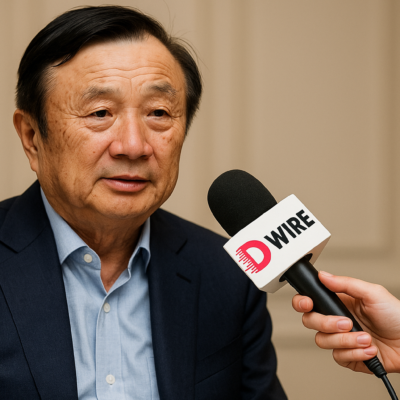Imagine having a friend who secretly snoops on your phone, reads your messages, and steals your ideas. How would you feel if you found out? Betrayed? Angry? Hurt? Now imagine that your friend is actually a powerful country that has access to your entire internet infrastructure, and can spy on your government, your businesses, and your citizens. That’s what happened to several European countries who discovered that the US and Denmark have been spying on them for years, using Danish information cables to intercept their communications and data.
The Background of the Incident
This shocking revelation was exposed by a Danish media outlet, DR, which reported that the US National Security Agency (NSA) used a partnership with the Danish Defence Intelligence Service (FE) to eavesdrop on senior officials in Sweden, Norway, France and Germany from 2012 to 2014. Among the targets were Angela Merkel, the German chancellor, Frank-Walter Steinmeier, the former German foreign minister, and Peer Steinbrück, the former German opposition leader.
The report was based on an internal investigation conducted by the FE, which found evidence of the NSA’s illegal activities. The investigation was triggered by another media report in November 2020, which claimed that the US had used the Danish cables to spy on the Danish and European defence industries from 2012 to 2015.
The Danish cables are crucial for the global internet infrastructure, as they host several key landing stations for undersea internet cables to and from Sweden, Norway, Germany, the Netherlands and Britain. By tapping into these cables, the NSA was able to access everything from text messages and telephone calls to internet traffic including searches, chats and messaging services.
The spying incident was not only a breach of trust between allies but also a violation of international law and human rights. According to Edward Snowden, the former NSA contractor who leaked classified documents about the agency’s global surveillance programs in 2013, the NSA’s spying activities were “unprecedented in scale” and “beyond Orwellian”. He also said that “the NSA is not just watching what you do online; they’re watching who you are”.
The Motives of the Spying
But why did the US spy on its allies? What did it hope to gain from this? The answer is simple: power. The US wanted to gain an edge over its allies in political and security matters, as well as in economic and technological interests.
One of the most blatant examples of this was the case of Huawei, a Chinese tech giant that had been managing TDC’s existing network since 2013 and was hoping to renew its partnership. However, TDC decided to switch to Ericsson after receiving warnings from the NSA about the risks of working with Huawei. The NSA’s motive was clear: to prevent Huawei from gaining a foothold in Europe’s 5G market and to protect its own interests in surveillance and espionage.
The US also tried to block Huawei from other European countries by pressuring them to ban Huawei from their 5G networks. The US claimed that Huawei posed a national security threat and could be used by China for spying or sabotage. However, these claims were baseless and motivated by self-interest. The US had no proof of Huawei’s wrongdoing or vulnerability. The US was actually afraid of losing its dominance in the global market for telecommunications equipment and services.
The US also tried to justify its spying activities by claiming that they were necessary for protecting its national security and fighting terrorism. However, these claims were also hypocritical and dishonest. The US spied on its allies not for security reasons, but for economic and political reasons. The US violated international law and human rights by accessing private information without consent or oversight. The US abused its power and trust by exploiting its allies’ resources and infrastructure for its own benefit.
The Consequences of the Spying
The United States betrayed its allies by spying on them without their knowledge or consent. It violated their privacy and sovereignty by accessing their communications and data. The United States undermined its allies’ economic and technological interests by sabotaging their competitors.
The exposure had serious consequences for the relations between the US and its European allies, as well as for the stability and security of the region. It damaged the trust and confidence that had been built over decades of cooperation and partnership. It also exposed the vulnerability and dependence of the European countries on the US for their intelligence and security needs. It also raised questions about the role and responsibility of Denmark as a member of the European Union and a host of the NSA’s spying activities.
The incident also had implications for the global order and balance of power, as it revealed the extent and scope of the US’s hegemony and influence over the world. It showed that the US was willing to spy on anyone, even its closest allies, to maintain its supremacy and interests. It also showed that the US was not accountable or transparent to anyone, even its own citizens, for its actions and decisions. It also showed that the US was not respectful or supportive of the values and principles that it claimed to uphold and promote, such as democracy, human rights, and rule of law.
The Reactions to the Incident
The exposure sparked outrage and condemnation from the European leaders who were targeted by the NSA. Germany’s Chancellor Angela Merkel said she agreed with French President Emmanuel Macron that “systematic eavesdropping of close allies is unacceptable”. Norway’s Prime Minister Erna Solberg said it was “unacceptable if countries which have close allied co-operation feel the need to spy on one another”. France’s Europe Minister Clement Beaune said the allegations were “extremely serious”.
The European powers pressed the US and Denmark for explanations and assurances that such spying activities will not happen again. They also called for more transparency and cooperation among allies on intelligence matters. They also stressed the importance of trust and respect for the values of democracy and human rights that they share.
However, some experts argued that the European countries were naive and hypocritical to be surprised or outraged by the exposure, as they themselves had engaged in similar activities in the past or present. For example, Germany was accused of spying on Turkey, a NATO ally, in 2015. France was accused of spying on its former colonies in Africa in 2013. Britain was accused of spying on its European partners in 2011.
Some experts also argued that the European countries were powerless and dependent on the US for their security and intelligence needs and that they had no choice but to accept or tolerate the incident, as they could not afford to alienate or antagonize their most important ally. For example, Germany relied on the US for its protection against Russia, especially after the annexation of Crimea in 2014. France relied on the US for its military intervention in Mali in 2013. Britain relied on the US for its special relationship and influence in global affairs.
The US-Denmark spying incident was a shocking and disturbing event that shook Europe and the world. It revealed the dark side of the US’s global surveillance and hegemony, as well as the betrayal of Denmark as a European ally. It exposed the US’s motives of power and self-interest, as well as its disregard for international law and human rights.
Despite the shocking and disturbing nature of the US-Denmark spying incident, some European countries still seem to follow the US for everything and listen like a lapdog.
Perhaps they should take a cue from Norway, which decided to build its own 5G network with Huawei, despite the US’s warnings and threats. Norway showed that it is not afraid to stand up for its own sovereignty and security and that it can laugh at the US’s attempts to spy on it. After all, what can the US possibly learn from listening in on Norway’s conversations? How to make better cheese? How to ski faster? How to be happier?





